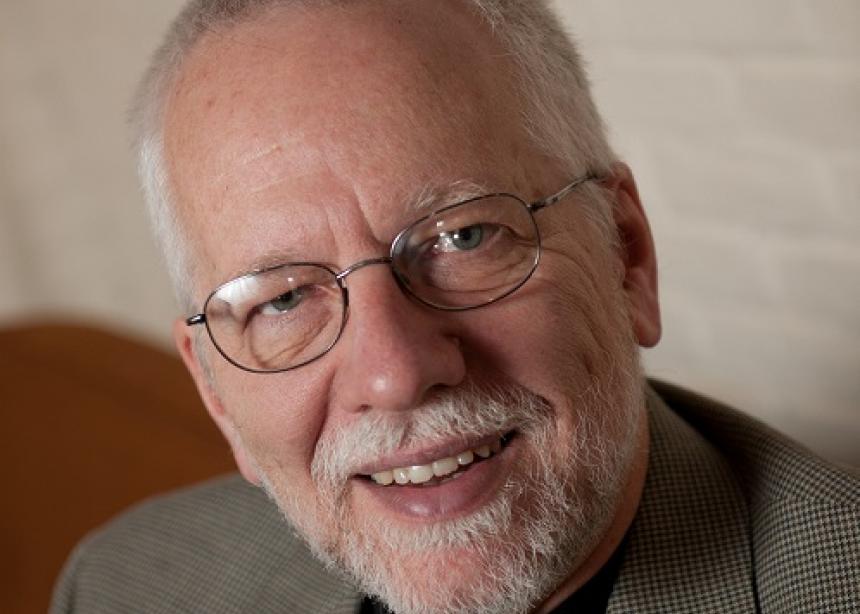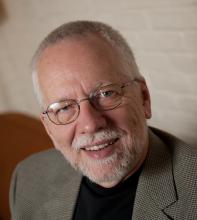“God is helping us take apart what was, in order to build something new, so that we can engage the world in more effective ways,” says Keith Regehr confidently.
Regehr is the newly appointed transition coordinator for the five area churches and national church that together comprise Mennonite Church Canada. He is tasked with managing the transition of these structures as they respond to the change principles outlined in the final report and addendum of the Future Directions Task Force.
The idea of transformation appeals to Regehr, both in his work and his reading material. “I’ve long been a sucker for a really good story where people change and where grace is available in the midst of the change,” he says.
Both pragmatic and deeply spiritual, Regehr approaches his role with experience as a teacher, lawyer, and conflict resolution manager. He draws a close connection between transition and transformation and says that surrendering to God is essential to both.
But what does that mean?
Surrender
In North America, we tend to assume a “we can fix it” attitude. “But surrendering to God means recognizing that we can’t do it all on our own,” Regehr says. “In our spiritual lives, we need to let go of the ego’s desire for perfection and surrender heart, mind and will into God’s love and care. We need to let go of the past, which we cannot change, and allow God to redeem it as God sees fit.”
The process is similar in congregational life. “We surrender as a church to what God is doing in our life together. We let go of our desired outcomes for the church and welcome the work of God, allowing God to shape us individually and corporately into the image of Christ. The church surrenders heart, mind, and will into God’s hands. We surrender the past as well. God redeems the past so that we can transform, moving into the future in new ways.”
Regehr cites the example of a congregation he worked with from 2014 to 2015. After suffering from crisis after crisis over a 15-year period of decline and then losing a pastor under difficult circumstances, the congregation despaired. “They had lost their energy and felt trapped by everything that had happened,” Regehr says. “The grey atmosphere was palpable. When new people visited, they never came back.”
For over a year-and-a-half, Regehr guided the congregation through processes of lament and grief. “They spent time listening to what God wanted for them and found ways to surrender to God instead of trying to ‘fix’ things. By doing that, they found hope rather than despair.”
Gradually, the congregation developed a new energy, and the atmosphere changed. “People began to visit and actually stay. The shift in the atmosphere was that dramatic,” Regehr says.
Following God’s lead
Regehr makes a conscious effort to practice what he preaches and pay attention to God’s activity in his life. He and his wife, Arli Klassen, have a habit of reviewing each day together to see where God has been at work. In 2012, they embarked on a pilgrimage in Spain, walking the last 250 km of the Camino de Santiago pilgrim’s trail.
“The spiritual life is not an easy life. I’ve been seeing a spiritual director monthly for 15 years. It’s about following that deep desire for connection with God. Grace is always given,” he says, “and I’m conscious that I’m in need of grace.”
Regehr says he’s moving slowly into the practice of contemplative prayer—prayer that has no words and is all about listening, prayer “that invites God to speak into our lives corporately and individually.” Such deep listening is required of individuals, congregations, and the collective church body as we move through a period of transition and uncertainty, he muses. But transition and uncertainty aren’t without hope.
“Remember that God is leading us into this process,” Regehr says. “Some may say that change is prompted by monetary concerns and a society that isn’t as committed to church as it once was, but the world around us has changed. The church can’t function in old ways in the new world, and with God’s help, we will find out how we can serve God more effectively.”
Regehr is a managing partner of L3 Group (formerly ARC Ministries), helping people and their organizations develop new ways of working together. The company name stands for three “L” words that articulates its values: Love (the client, just as they are now); Listen (deeply, to the client and the leading of God); and Lead (with humility and courage). The experience of being loved and listened to helps L3 Group’s clients adjust and thrive in the changing world around them.
The L3 Group consists of an ecumenical group of partners whose collective experience Regehr brings to the table. They include Betty Pries, a former chair of Mennonite Church Canada’s Faith and Life Committee; Jason Dykstra of the Christian Reformed Church; and Marg Van Herk-Paradis, a Catholic.
Follow the work of the work of the Interim Council at futuredirectionsmc.ca.
For background on the Future Directions Task Force recommendations, see here.
To read about what the delegates of Mennonite Church Canada decided concerning Future Directions, see ‘We are all responsible for what happens next.’



Add new comment
Canadian Mennonite invites comments and encourages constructive discussion about our content. Actual full names (first and last) are required. Comments are moderated and may be edited. They will not appear online until approved and will be posted during business hours. Some comments may be reproduced in print.